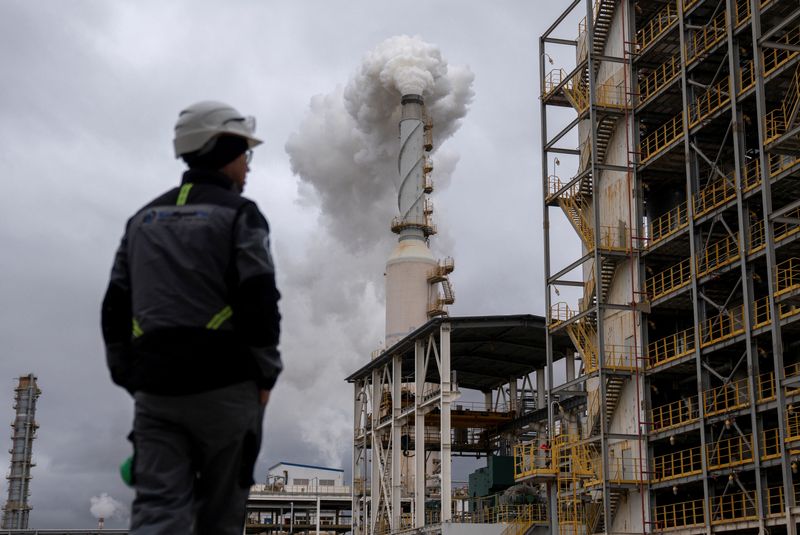
By Gabrielle Ng and Katya Golubkova
SINGAPORE (Reuters) -Oil prices slumped on Thursday, reversing earlier gains, on news Saudi Arabia, the world’s biggest crude exporter, will give up on its price target in preparation for raising output.
Brent crude futures were down $1.89, or 2.57%, to $71.57 a barrel, while U.S. West Texas Intermediate crude fell $1.83 cents, or 2.63%, to $67.86 per barrel as of 0740 GMT.
Saudi Arabia is preparing to abandon its unofficial price target of $100 a barrel for crude as it prepares to increase output, the Financial Times reported on Thursday, citing people familiar with the matter.
“The news overnight of a potential return of Libyan supply, coupled with today’s announcement of a lowered Saudi price target due to an expected increase in supply, has taken the wind out of the crude oil market’s sails following the boost provided by the PBOC’s easing measures announced earlier this week,” said Tony Sycamore, market analyst at IG.
A United Nations statement on Wednesday said delegates from divided Libya’s east and west agreed on the process of appointing a central bank governor, a step which could help resolve the crisis over control of the country’s oil revenue that has disrupted exports.
“Any revival in Libyan production would return to a market that is already beset by concerns of weak demand in the U.S. and China,” ANZ Research said in a note.
Meanwhile, Deputy Energy Minister Pavel Sorokin on Thursday said Russia does not want to flood the market with oil if there is no need.

Oil production costs are set to increase as more oil will be harder to extract, Sorokin said, adding that the country’s oil production target was set to reach 540 million metric tons per year by 2030, but supply could be adjusted.
Top government officials in China, the world’s largest crude oil importer, pledged on Thursday to deploy “necessary fiscal spending” to meet this year’s economic growth target of roughly 5%, acknowledging new problems and raising market expectations for fresh stimulus on top of measures announced this week.
This post is originally published on INVESTING.




